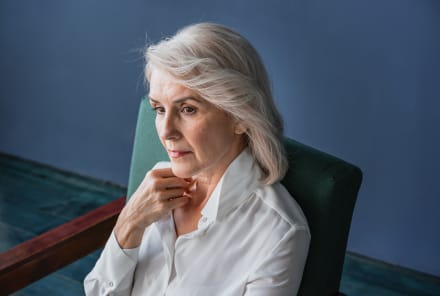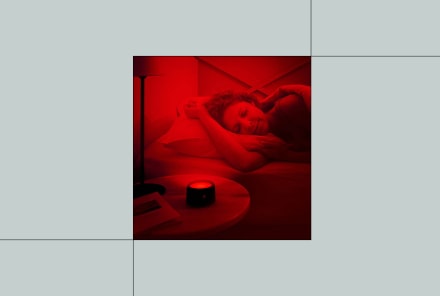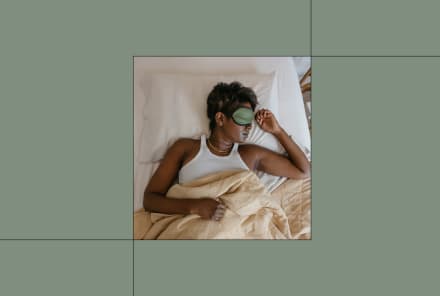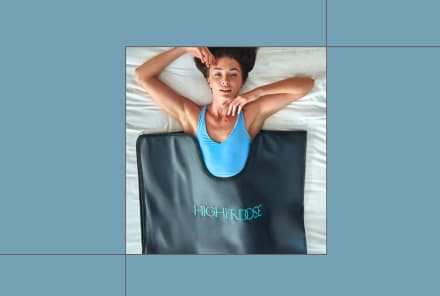Advertisement
How To Tell If You're REALLY Getting Good Sleep + 8 Ways To Improve It

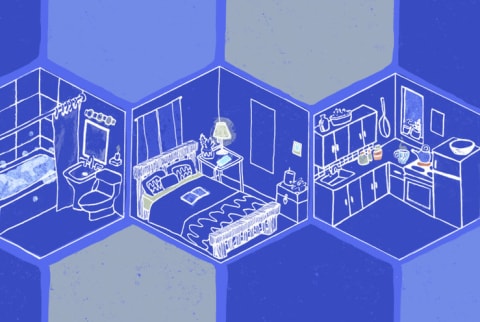
Dr. Frank Lipman is a renowned leader in the field of integrative medicine and one of our go-to experts here at mindbodygreen. That's why we're thrilled to feature a passage from his brand-new book on staying healthy and happy, 10 Reasons You Feel Old and Get Fat. In this adapted excerpt, Dr. Lipman explains how to finally get the restorative sleep your body needs.
Many of my patients show up with sleep problems. Indeed, statistics show that between 50 million and 70 million Americans have some type of difficulty sleeping.
The market for prescription sleep aids keeps going up and up and up, with 58.5 million prescriptions dispensed in 2012, up 10 percent from 2007. The market for over-the-counter sleeping pills is equally out of control.
Lack of sleep is one of the most significant health problems we face today.
The problem isn’t even confined to adults: there appears to be an increasing number of teenagers and even children who are unable to fall asleep, stay asleep, or some combination of both. If this keeps up, we’ll have to declare sleep an endangered species!
To me, lack of sleep is one of the most significant health problems we face today. If you are feeling old — senior moments; brain fog; lack of energy; perhaps even a loss of optimism, excitement, or joy — not getting enough good sleep might very well be at the root. If you are gaining weight, sleep problems could be a factor in that as well.
Are You Getting the Sleep You Need?
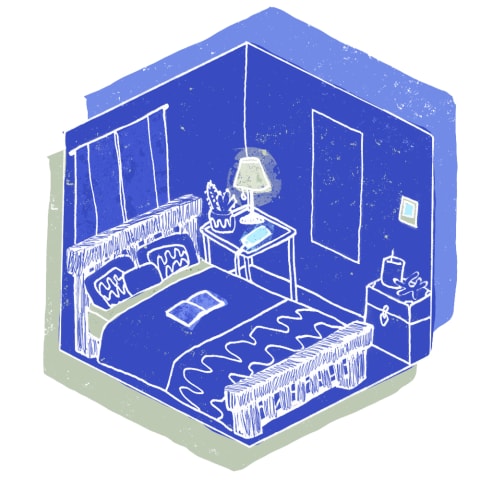
I find that very few people recognize the serious toll taken by lack of sleep. Although virtually every one of my patients comes in with some kind of sleep deficit, many consider these problems “normal” and wouldn't even mention them if sleep weren’t an important section of our patient questionnaire.
Do you also struggle to sleep peacefully through the night? If so, take heart: solutions do exist. But before we can find solutions, we have to understand the problem.
So let me start by asking you a few simple questions about your sleep patterns:
- Do you wake up feeling tired rather than energized?
- Do you often wake up feeling as though you could sleep for hours more?
- Do you find that you don’t have enough energy to get through the day comfortably without the use of sugar, caffeine, or other stimulants?
- Do you need coffee or some other form of caffeine to wake up?
- Do you need coffee or some other form of caffeine to stay alert throughout the day?
- Do you need to take long naps during the day?
- Do you feel “wired” instead of naturally tired at night when it’s time for bed?
- Do you rely on sleep medications to fall asleep?
- Do you often lie in bed wishing you could fall asleep?
- Do you wake up frequently throughout the night?
If you answered yes to even one question, you'd probably benefit from improving your sleep. And if you answered yes to several, an improvement in sleep quality might significantly improve your health.
How to Improve Your Sleep + Get Amazing Rest, Every Night
1. Lower the temperature.

Ideally, to 68 degrees or even colder. We sleep best in a warm bed within a cold room.
2. Check your mattress.
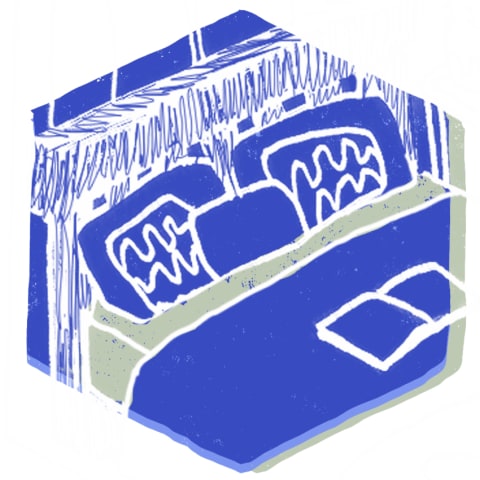
Make sure it’s firm, supportive, and genuinely comfortable. If your mattress is more than 10 years old, it might be time for a change.
3. Take a warm bath.
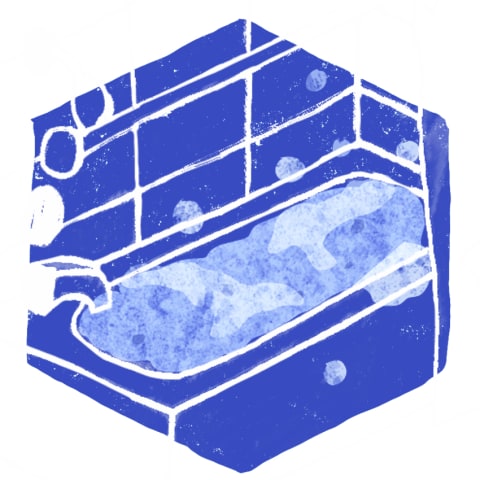
A hot bath raises your body temperature, which means that once you’re out of the bath, your body temperature soon drops. A lowered body temperature helps facilitate sleep.
4. Deprive your senses.

Make sure your room is dark and quiet. Even small light leaks and slight noises can keep you from sleeping as continuously and deeply as possible.
If necessary, get some earplugs or maybe a sleep noise machine, which can be set to white noise or some other soothing sound, such as the ocean, the woods at night, or even a low hum of city traffic. A noise machine can be especially useful when you’re traveling and want to block out strange sounds that might disturb your rest.
5. Create a bedtime ritual.
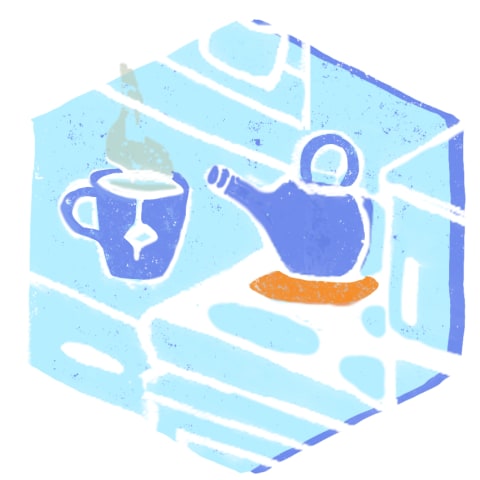
Give yourself time to make the transition, perhaps by developing a bedtime ritual. You can’t go 100 miles an hour all day long and then expect yourself to come to a dead stop all at once. Find your own way of slowly winding down.
6. Check for electromagnetic fields.
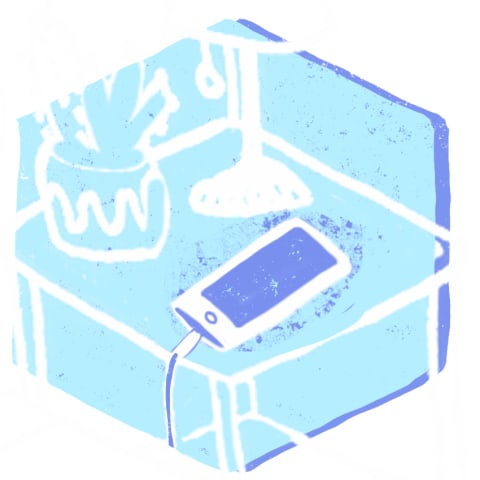
Electromagnetic fields (EMFs) are produced by electrical or electronic activity, so they emanate from any device that you plug in, including a digital clock, smartphone, computer, or TV.
Some research suggests that EMFs can disrupt the production of melatonin and serotonin—both essential to prevent inflammation and promote good sleep and a good mood. Other studies indicate that EMFs could disrupt your pineal gland, which helps regulate sleep and wakefulness based on your response to light and dark.
7. Try supplements.

Some natural sleep aids might help your body and brain relax, including melatonin, magnesium, and GABA (my book discusses these more in depth). Consult your doctor about what might be right for you.
8. If you can’t fall or stay asleep, get up.
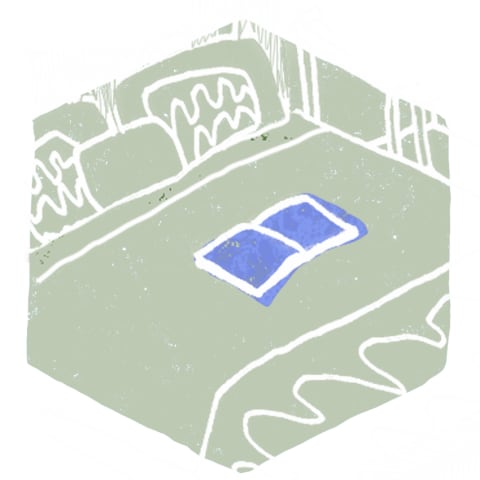
Give yourself 45 minutes to fall asleep, and if that doesn’t work, get up and engage in a relaxing, non-screen activity such as reading or listening to music. After about 60 more minutes, go lie down again. Don’t associate your bed with wakefulness; give yourself the chance to create a strong association between bed and sleep.
Related reads:
11 Clues You’re Eating Too Many Carbs

For Dr. Frank Lipman, health is more than just the absence of disease: it is a total state of physical, mental, emotional, spiritual and social wellbeing. Dr. Lipman is a widely recognized trailblazer and leader in functional and integrative medicine, and he is a New York Times best-selling author of five books, How to Be Well, The New Health Rules, Young and Slim for Life, Revive and Total Renewal.
After his initial medical training in his native South Africa, Lipman spent 18 months working at clinics in the bush. He became familiar with the local traditional healers, called sangomas, which kindled his interest in non-Western healing modalities
In 1984, Lipman immigrated to the United States, where he became the chief medical resident at Lincoln Hospital in Bronx, NY. While there, he became fascinated by the hospital’s addiction clinic, which used acupuncture and Chinese medicine making him even more aware of the potential of implementing non-Western medicine to promote holistic wellbeing.
He began studying nutrition, acupuncture, Chinese medicine, herbal medicine, functional medicine, biofeedback, meditation, and yoga. Lipman founded the Eleven Eleven Wellness Center in 1992, where he combines the best of Western medicine and cutting edge nutritional science with age-old healing techniques from the East. As his patient, chef Seamus Mullen, told The New York Times, “If antibiotics are right, he’ll try it. If it’s an anti-inflammatory diet, he’ll do that. He’s looking at the body as a system rather than looking at isolated things.”
In addition to his practice, he is also an instructor in mbg's Functional Nutrition Program.
More from the author:
Functional Nutrition Training
Check out Functional Nutrition Coaching
A cutting-edge nutrition deep dive taught by 20+ top health & wellness experts
Learn moreMore from the author:
Functional Nutrition Training
Check out Functional Nutrition Coaching
A cutting-edge nutrition deep dive taught by 20+ top health & wellness experts
Learn more
For Dr. Frank Lipman, health is more than just the absence of disease: it is a total state of physical, mental, emotional, spiritual and social wellbeing. Dr. Lipman is a widely recognized trailblazer and leader in functional and integrative medicine, and he is a New York Times best-selling author of five books, How to Be Well, The New Health Rules, Young and Slim for Life, Revive and Total Renewal.
After his initial medical training in his native South Africa, Lipman spent 18 months working at clinics in the bush. He became familiar with the local traditional healers, called sangomas, which kindled his interest in non-Western healing modalities
In 1984, Lipman immigrated to the United States, where he became the chief medical resident at Lincoln Hospital in Bronx, NY. While there, he became fascinated by the hospital’s addiction clinic, which used acupuncture and Chinese medicine making him even more aware of the potential of implementing non-Western medicine to promote holistic wellbeing.
He began studying nutrition, acupuncture, Chinese medicine, herbal medicine, functional medicine, biofeedback, meditation, and yoga. Lipman founded the Eleven Eleven Wellness Center in 1992, where he combines the best of Western medicine and cutting edge nutritional science with age-old healing techniques from the East. As his patient, chef Seamus Mullen, told The New York Times, “If antibiotics are right, he’ll try it. If it’s an anti-inflammatory diet, he’ll do that. He’s looking at the body as a system rather than looking at isolated things.”
In addition to his practice, he is also an instructor in mbg's Functional Nutrition Program.
Watch Next
Enjoy some of our favorite clips from classes
Enjoy some of our favorite clips from classes
What Is Meditation?
Mindfulness/Spirituality | Light Watkins
Box Breathing
Mindfulness/Spirituality | Gwen Dittmar
What Breathwork Can Address
Mindfulness/Spirituality | Gwen Dittmar
The 8 Limbs of Yoga - What is Asana?
Yoga | Caley Alyssa
Two Standing Postures to Open Up Tight Hips
Yoga | Caley Alyssa
How Plants Can Optimize Athletic Performance
Nutrition | Rich Roll
What to Eat Before a Workout
Nutrition | Rich Roll
How Ayurveda Helps Us Navigate Modern Life
Nutrition | Sahara Rose
Messages About Love & Relationships
Love & Relationships | Esther Perel
Love Languages
Love & Relationships | Esther Perel
What Is Meditation?
Box Breathing
What Breathwork Can Address
The 8 Limbs of Yoga - What is Asana?
Two Standing Postures to Open Up Tight Hips
How Plants Can Optimize Athletic Performance
What to Eat Before a Workout
How Ayurveda Helps Us Navigate Modern Life
Messages About Love & Relationships
Love Languages
Advertisement
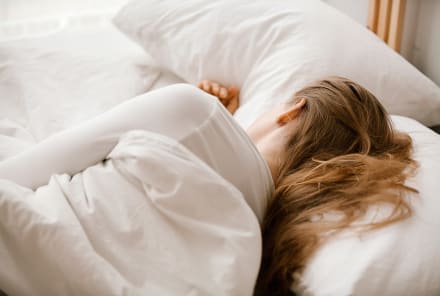
This Little-Known Supplement Helps Women Sleep & Decreases Signs Of Depression
Molly Knudsen, M.S., RDN

This Little-Known Supplement Helps Women Sleep & Decreases Signs Of Depression
Molly Knudsen, M.S., RDN


